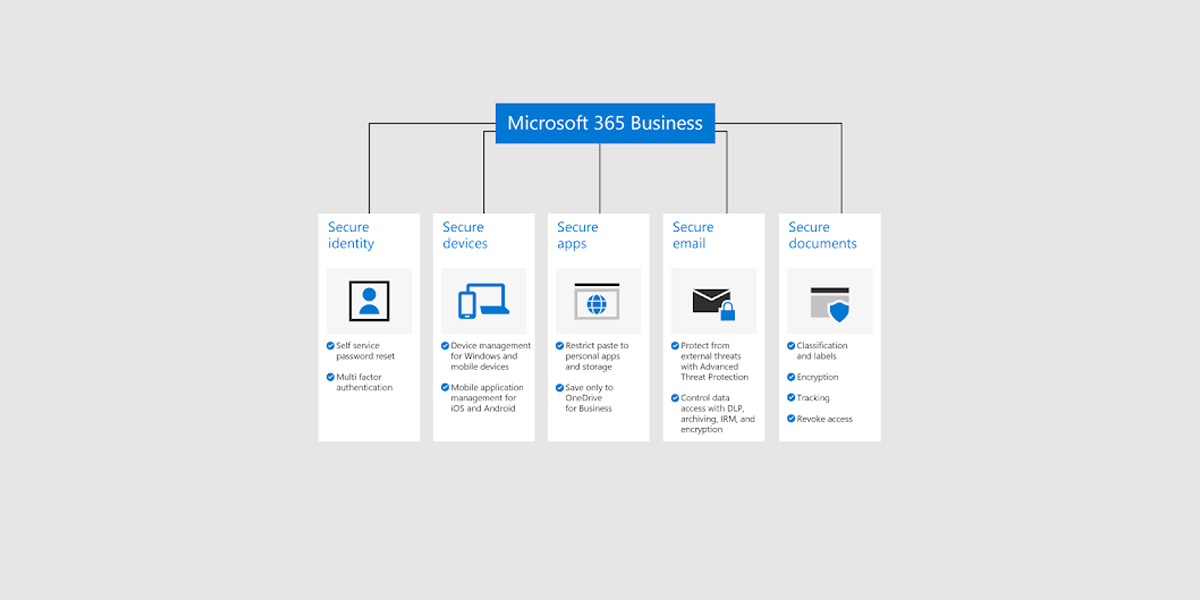94% of all companies use cloud services, but how do you know if a cloud solution is delivering value for your firm?
Cloud solutions offer a wide range of benefits for businesses of all sizes. There’s a lot to love about the cloud, from increased efficiency and productivity to decreased costs and improved security.
If you’re not already using cloud solutions, it’s time to consider making the switch. Cloud solutions can help take your business to the next level.
Read on to learn what cloud solutions can really do for your business.
What Are Cloud Solutions?
People often use the word “cloud” inaccurately as a synonym for “internet.” Alternatively, someone may believe that “the cloud” is a giant, nonexistent data storage resource in the sky.
In reality, the cloud uses the internet for communication. It’s made up of hundreds of thousands of distinct clouds.
Millions of data servers around the world support the cloud. In fact, the cloud has been available for businesses for around 15 years.
Types of Cloud Solutions
Overall, cloud infrastructure revolves around three services—IaaS, PaaS, and SaaS. These services enable companies to expand or replace their data centers. They also provide business applications and software development environments.
If you want to know what makes up the heart of the cloud, look for offerings with the words “as a service.” This language means that the service is cloud-based.
Let’s go over the most common cloud-based services.
Infrastructure as a Service (IaaS)
IaaS solutions are cloud-based hardware services. These services might include:
• Compute storage
• Networking
• Virtualization
Before cloud solutions, companies needed massive server farms and data centers to support their IT infrastructures.
Now, however, IaaS solutions give companies a scalable way to use the abilities of computing hardware over the internet. Moreover, companies don’t need to own or maintain the hardware to enjoy its benefits. Some of the top vendors of IaaS solutions include Amazon AWS, Google Cloud Compute Engine, and Microsoft Azure.
Platform as a Service (PaaS)
PaaS is a group of cloud services. It supports software engineers.
This solution enables them to test and manage applications. However, they don’t need the hardware to do so with PaaS solutions.
PaaSs differ greatly. Still, the basic foundation of most PaaS solutions includes IaaS storage, compute services, and networking.
Software as a Service (SaaS)
SaaS solutions are cloud-based applications. They run in the cloud.
Businesses access them using the internet. Usually, SaaS solutions run in a lightweight application or web browser.
This cloud solution was the earliest kind of service to become popular. Today, SaaS solutions have entirely changed the way people access and pay for software.
Cloud Solution Configurations
Vendors further divide cloud solutions by the way they’re set up—hybrid, multi, and private clouds. These terms can prove deceptive.
Take the term “public cloud.” This term doesn’t mean cloud services for the public.
When you hear public cloud, for instance, you might think of services like Google Drive, OneDrive, or Dropbox. In reality, however, the term public and private cloud refers to the way that companies host services.
Let’s have a closer look at cloud service configurations.
Hybrid Cloud
Hybrid cloud solutions have two or more cloud types. Companies use them in coordination, typically to achieve a common goal. The cloud types might include public, private, or community clouds. It’s a resource shared by two or more enterprises that collaborate toward the same purpose.
A hybrid cloud solution offers agility and flexibility. It enables companies to get things done faster and more efficiently.
Multi-Cloud
A multi-cloud solution is simply two or more cloud services. However, companies secure the services from different service providers.
You might wonder why a company wouldn’t simply secure cloud services from a single provider. As you might imagine, using cloud resources in this way adds complexity. For instance, it creates added security challenges.
Nevertheless, there are good reasons why some companies use one or more cloud vendors for their needs. These advantages may prove similar to the benefits of a hybrid cloud.
However, this type of arrangement isn’t ideal for every organization. If you’ve been considering this option, you should most certainly consult with an IT expert consultancy beforehand.
Private Cloud
The term private cloud refers to the hardware and software used for cloud services. It means a business organization has the exclusive use of those services.
The organization might host private cloud hardware on or off-site. It may also generate a cloud solution. Alternatively, a company might access a private cloud over the internet from a service provider.
The key thing to bear in mind when it comes to private clouds is they’re dedicated to one business and not shared by others.
Public Cloud
With a public cloud, a business shares the hardware and software for cloud services with other businesses. Popular public cloud services include:
• Alibaba Cloud Elastic Compute Service
• Amazon Elastic Compute Cloud (Amazon EC2)
• Digital Ocean Droplets
• Google Compute Engine
• Microsoft Azure Virtual Machines
Public cloud clients share resources. These resources include computing, storage, and networking hardware.
It helps to think about web hosting. Public cloud solutions work much in the same way as this service.
Benefits of Cloud Solutions
Over time, cloud solutions have proven a reliable turnkey service. They help businesses get insights from real-time data.
They also help to enhance decision-making. Moreover, cloud solutions help companies capitalize on new opportunities.
They enable firms to differentiate and disrupt using accelerated innovation. In this way, you can consider cloud solutions a new-age innovation booster.
What Can the Cloud Do for You?
Most of the value of cloud services comes from boosting innovation. Each year, cloud solutions drive billions of dollars of innovation. They also save companies costs and risks that add up to billions of dollars.
Another valuable benefit of cloud solutions is that they work on a pay-as-you-go model. Companies are no longer forced to make a massive upfront IT investment to take advantage of the latest technology.
Firms can now use technology to their advantage without a large, upfront investment. More importantly, they only pay for the technology they use.
In this way, cloud solutions cost a fraction of what it used to cost businesses to maintain these technologies on their own. Yet, they still achieve the same great results.
Do More Faster
Software development companies, in particular, benefit greatly from cloud solutions. PaaS solutions enable developers to get apps to market faster. They help development firms improve in areas such as scalability, resiliency, and evergreen application runtime.
Platform as a Service solutions enable software engineers to remain focused on core functionality. They don’t have to divert their focus to issues such as scalability, resiliency, and patch management. Nor do they need to manage automation or provisioning and deployment with PaaS solutions.
Today, companies use PaaS solutions to simplify the app development lifecycle. In this way, they help move ideas from concept to market much faster.
Data Access Where You Need It
The cloud solution marketplace enables cross-collaboration with multiple partners and vendors. It also empowers companies to develop solutions more quickly.
Now, companies can build new products and services quickly. In a way, they can put resources together much like building a Lego block model.
This capability is a low-risk, fast way to benefit from cutting-edge technology and strategies. It gives companies an excellent opportunity to create value and grow their core businesses and customer bases. At the same time, it empowers firms to expand their portfolios.
Approaching the Cloud
If you want to get the most from the cloud, you must prioritize use cases that align with your business strategy. In other words, you must have a “purpose priority.” You must know what you want to achieve with the cloud.
This understanding is critical to bringing together your business and IT units. It will help close the gap between your company objectives and technical goals. Also, a purpose priority will help everyone share the same strategic vision.
Smashing Norms
If you want to disrupt your sector, you must leverage artificial intelligence and machine learning cloud models carefully. By doing so, you can become the front runner in unexplored markets, products, and services.
Consider companies like Airbnb, Netflix, and Uber. These firms took a calculated risk. They used the cloud to differentiate themselves from their competitors.
Still, it’s not wise to deploy to the cloud in one massive leap. Instead, it’s more prudent to pursue a path of slow, steady progress. At the same time, you can reimagine the future of your firm with new products and services powered by the cloud.
Embrace a Security-First Mindset
Companies have been facing an awakening over the last several years. They’re adjusting to changing consumer preferences.
Now, brands must produce responsible and sustainable products. Moreover, however, they must deploy security controls for their people, processes, and technologies effectively. In some cases, firms must also comply with regulatory and government mandates.
Downtime caused by security breaches costs companies billions of dollars. You can avoid this fate by developing a more resilient cloud architecture from the start.
By planning ahead, for instance, you can reduce migration downtime considerably. An experienced IT consultant can help you achieve this goal successfully
Going Cloud-Native
When moving to the cloud, you must do more than “lift and shift.” It’s better to build a cloud-native architecture from the ground up.
Of course, this kind of transition will take organizational and technological change. However, your organization will reap much greater benefits in the long run.
With cloud-native solutions, scaling is easier, and deployment is faster. More importantly, the results are more resilient.
Planning to Scale
It’s vital to think about the steps in your innovation journey. It helps to break a cloud migration into more manageable initiatives.
Simultaneously, you must make the best decision for every phase of the project. With this in mind, it’s critical to design a viable plan from concept to production.
Getting off to a Great Start
Cloud resources play a critical role for many kinds of companies. For instance, cloud contact center solutions have transformed the contact center industry.
Now, there’s not a contact manager that doesn’t know the importance of cloud call center solutions. Still, it can prove challenging for enterprises to manage all the technicalities of cloud deployment.
With this in mind, it’s a good idea to partner with a managed IT services company. An experienced managed IT services company can help you leverage the latest technology to your advantage. They can help you deploy to the cloud successfully faster and for less than what it will cost you to do in-house.
You can do more with today’s cloud solutions than simply backing up your critical data, although it’s still essential.
An expert IT consultant will show you how to use cloud technologies to improve your operation. All the while, they’ll provide you with state-of-the-art cloud solutions that are secure from the very start.
The Importance of a Security-First Mindset
Cybersecurity is a major concern shared by many organizations. One data breach can ruin your reputation. The cleanup can also create a massive bill.
By working with a managed IT service, you can reduce the chances of a cyber breach. For example, you may hire a managed service to monitor your network.
Alternatively, you could hire an IT consultant to train your employees on cybersecurity best practices. A consultant can even help assess your current network for vulnerabilities.
Start Getting More Out of Your Data Today
As you can see, there are many different types of cloud solutions to choose from, and each one has its own benefits. If you’re unsure which type of cloud is best for your business, reach out to Securelogic Solutions. We’re happy to help.
Start smashing norms and getting more out of your data with the power of the cloud. Are you ready? Contact Securelogic Solutions today to speak with an expert.




